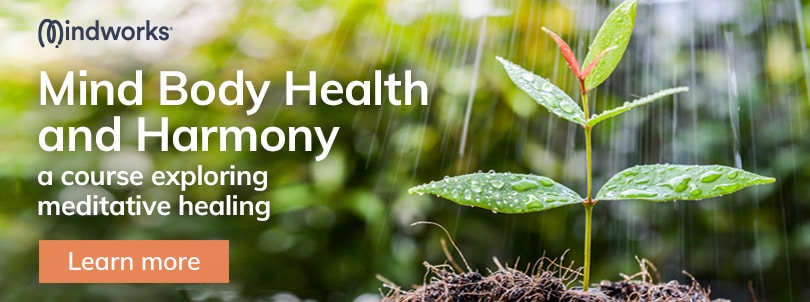Lifestyle Medicine and a Simple Formula for Wellness
Category: Health and Meditation | Mind Trainer Articles

Keys to Establishing a Lifestyle that Meets Your Goals
What is lifestyle medicine?
Lifestyle medicine is a form of mind-body medicine where we look to lifestyle changes not only for disease prevention but also for treating illnesses. Many conditions can also be treatable in their early stages through lifestyle adjustments. Type two diabetes is a classic example, but even something as severe as heart disease or early prostate cancer may be curable. We’re currently studying early Alzheimer’s disease and looking at whether lifestyle may be able to reverse it. And lifestyle has a real impact on depression, anxiety, and other conditions that plague our culture yet may not be considered classic diseases.
There are many pillars of lifestyle medicine; you can define them however you want. In my work with Dr. Dean Ornish, we focus on four of these: 1. eating in a way that promotes health; 2. healthy movement; 3. love & intimacy—in particular, how to communicate in a way that people can hear, and how to listen in a way that encourages communication; and finally, 4. managing the big thing that hits us where it hurts: stress. These four changes have been shown to reverse heart disease, lengthen telomeres, reverse early prostate cancer, and reverse type two diabetes.
There are many other changes you could start with, including looking at sleep, play, purpose and meaning. These are great too. The nice thing is that research shows that the rest of your life follows when you make one substantial change.
I like to think of purpose and meaning as the big center of lifestyle medicine; in a way, everything comes from purpose and meaning. And at the center of that, really, is love, because don’t we all want love? If we have love, everything else kind of falls into place. Love makes us want to live longer, and wanting to live longer means we will pay more attention to our health. Love starts with loving ourselves. If we can authentically be ourselves, then we’re going to love ourselves, and a pleasant side effect is that it makes it easier for us to love others. It’s just the natural, next thing, of course, duh (laughs). And if we’re in love with everybody, then won’t we want to serve and give back to everybody? Part of the reason I focus so much on how people behave and what motivates behavior is that’s what will help us serve the most significant number of people.
Creating a world that works for everybody involves helping the things that most of us are chasing—such as security, sensations, and power find their proper place. These are the three lower chakras; unfortunately, you can never get enough of them. People who are hooked on security will never have enough protection. For people hooked on pleasure, there’s no “enough” to pleasure. In case you haven’t looked around, there’s no “enough” to power. But when you have love, it’s abundant. It’s an ever-flowing river.
Lifestyle medicine involves looking at some of the things that are driving our choices. Then looking at who we want to become, and have our choices align with who we want to become. This is essentially you ‘becoming more you’ and me ‘becoming more me’ in our most authentic, original state. It’s that simple. It’s all about identity, right? Who do I want to be? What part of my behavior isn’t quite aligned with that? What do I need for that part of me to be victorious every single day? When I’m attentive to this, my lifestyle isn’t about another f%$#ing thing on my to-do list—it’s like now I have a “to be” list. And paying attention to who I want to be when I wake up every morning is the best way to start the day.
Meditation is an essential part of wellness
In the same vein, as lifestyle changes for you to become more of who you want to be in the world, the lifestyle formula for wellness is also simple. You apply the two fundamentals: Stop doing what’s making you sick and start doing what will make you well. Most of us know the difference, right? It’s not a mystery. It relates to our identity—who we want to become—and to our integrity—how do we honor that? If you’ve spent time with people who are reaching the ends of their lives, often you’ll find that the same few things brought them happiness. One is that they lived with integrity—if you live with integrity, you will be relatively happy when you leave this planet. Another is that they made connections with people. When you live with integrity, you connect with other people living in alignment with their values. It doesn’t have to be the same notion of integrity as yours, but you’ll recognize it. Whether they’re walking down the street or entering a café, there’s something familiar about them.
When you start mindfulness meditation or any practice that brings you a greater awareness of who you are and who you want to be in this world, you can identify the course that needs to be followed. You can look at some of your habitual behaviors and say, I don’t want to do those things anymore. And you’re going to identify some of the behaviors you haven’t been doing but know you need to and say, I want to do those more. You’re focusing on stopping what’s making you ill and beginning to do what will make you well, and the results are miraculous.








